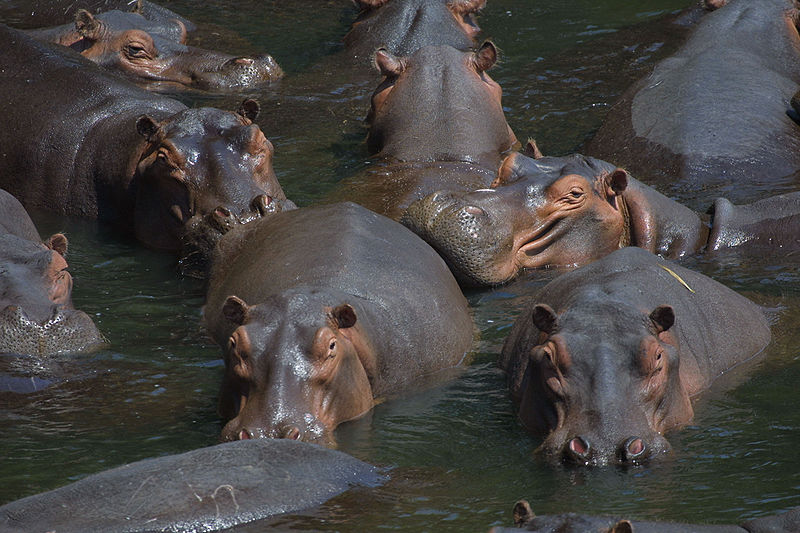Last week’s post attempted to place us inside the Chauvet caves in France so that we might once again stand awestruck, surrounded on all sides by thirty thousand year-old cave paintings and the ultimate mystery they represent. The way of the animal powers. Believe it or not, this week’s post strives to connect this ancient yet eternal mystery with recent events involving, of all people, Osama bin Laden. To make our desired move from natural art to ethics, however, we must first ask philosopher, theologian, medical missionary, and Nobel Peace Prize laureate Albert Schweitzer for help:
“Slowly we crept upstream, laboriously navigating – it was the dry season – between the sandbanks. Lost in thought I sat on the deck of the barge, struggling to find the elementary and universal concept of the ethical that I had not discovered in any philosophy. I covered sheet after sheet with disconnected sentences merely to concentrate on the problem. Two days passed. Late on the third day, at the very moment when, at sunset, we were making our way through a herd of hippopotamuses, there flashed upon my mind, unforeseen and unsought, the phrase ‘reverence for life.’ The iron door had yielded. The path in the thicket had become visible. Now I had found my way to the principle in which affirmation of the world and ethics joined together!”[1]
Later, Schweitzer adds: “All thinking that penetrates to the bottom arrives at ethical mysticism. What is rational reaches eventually the nonrational. The ethical mysticism of Reverence for Life is rational thought that derives its power from the spiritual nature of our being.” [2] Perhaps Schweitzer’s sentiments here and elsewhere represent the evolution from a predominantly nonrational experiencing of spiritual nature as displayed in the Chauvet cave to a more rational and ethical understanding of the same nature today. Needless to say, as Schweitzer’s own “herd of hippos” experience reveals and as his quotes make clear, this rational/ethical stance does not supplant the nonrational “spiritual nature of our being” but rather stems from and is completely dependent upon it.
But what, if anything, does this have to do with Osama bin Laden? First, one might argue that fundamentalism as generally understood occurs when the process just described by Schweitzer is thwarted or even reversed. Out of a never-ending jockeying back and forth between superiority and equally fearful inferiority, the rational ego anxiously places itself above and before any experiences of the nonrational. In other words, if any power or meaning is granted to the “spiritual nature of our being” it is most certainly derived from our very carefully, rationally defined construction of ourselves. The rational determines the nonrational, not the other way around as with Schweitzer and his fundamental sense of ethical mysticism. [3]
According to “Growing up bin Laden: Osama’s Son Speaks,” a 2009 Time magazine article, when bin Laden’s children complained about their austere life in al-Qaeda camps, he would tell them, “My sons, your limbs must react to my thinking as though my brain was in your head.” To a certain extent we can see in this quote the prioritizing of rational thought over the nonrational instincts of the body and its limbs. Focusing on Osama’s son Omar, the article goes on to show how Omar eventually left the rationalistic authoritarianism of his father for a more natural and spiritual way of being:
“Intelligence agencies and scholars of extremist movements might do well to pay attention to Omar’s al-Qaeda childhood for clues about how to inoculate young people against radicalism. His remarkable achievement — to have maintained humane beliefs despite being pulled from school at the age of 12 and exposed to a near constant deluge of hateful propaganda, isolation and family pressure — seems to have been helped by a love of animals. A constant collector of pets — against his father’s wishes — and an avid horseman, Omar’s awareness of the madness of al-Qaeda was fueled in part by several acts of animal cruelty by his father’s men. When they lived in Sudan, one of the family guards killed Omar’s pet monkey by running it over with a truck, explaining that the creature was in fact a Jew turned into a monkey by the hand of God. Later, Omar learned that it was his father who taught the guard that monkeys were Jews.”[4]
Reverence for both animal and human life is horridly missing in the above. To be blunt and risk stating the obvious: reverence for life and life’s nonrational aspects separates an Omar from an Osama bin Laden.
Let’s give Schweitzer the last word:
“[T]he man who has become [an ethical] thinking being feels a compulsion to give to every will to live the same reverence for life that he gives to his own. He experiences that other life in his own. He accepts as good preserving life, promoting life, developing all life that is capable of development to its highest possible value. He considers as evil destroying life, injuring life, repressing life that is capable of development. This is the absolute, fundamental principle of ethics, and it is a fundamental postulate of thought.”[5]
——
Next Monday: Paging Dr. Hawking…



